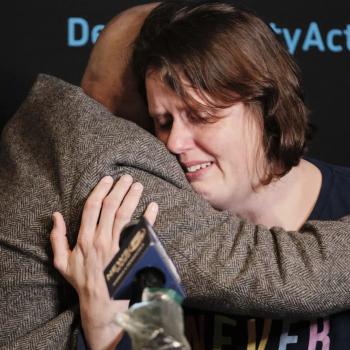I realized that I had felt a sense of entitlement. I was always the first guy into the gym and the last guy to leave. I never missed a single day of practice, ever, until I went to college. Gymnasts sacrifice a lot. I never went to high school parties, never had a girlfriend, didn't go to graduation. I never even went to my senior year of high school; I did correspondence courses instead. Since I had sacrificed so much, I felt that I was basically entitled to be on the Olympic team. So when I missed the Olympics, I wondered how something like that could happen. Two years earlier, I had been ranked third in the country.
Yet ultimately I had to become honest with myself. I realized that, well, you're not entitled to anything. You have to earn it. You make all of those sacrifices because you want to, not because you demand to get some kind of return on your investment.
That's when I started doing a self-study, and got into how I was essentially made up. How did I think as a person? How was I susceptible to failure in terms of negative thoughts or anxiety? I made myself a case study, and that's when I got into hypnotherapy, meditation, yoga. Those things had such a profound effect that they kind of became a quasi-religion for me.
What's the meaning of religion? Is it to understand the point of life, or the afterlife? For me it was, if I can focus on how to successfully create something, then in some way I'm changing the universe. It's like The Secret says: we create our lives. We're more in control than we think. If you put your desire out there, and know how to focus on it, good things will start to come to you. It creates a snowball effect.
So you come back to the Olympic trials in 2000, and this time you make the Olympic team. You've realized a lifelong dream. How did that affect you, and what was it like?
The Olympics is basically just a competition that's highly televised. That's all it is. But the desire to make the Olympics can be practically a disease or an addiction. Once I went to the Olympics, I felt like I was okay, I had figured it out. And I felt an incredible calmness and gratification for having the opportunity to be a part of something that taught me so much. There's a tremendous sense of respect amongst all the competitors. You know that everyone has sacrificed a lot to be there.
But for me, the "Olympics" was really the whole journey. Training and sacrificing, doing whatever it takes, and never giving up, that's what creates an Olympian. Then it becomes a question: well, how do I give back to this? It moves beyond just you.
You were twenty-six when you made the 2000 Olympics, which is already on the old side for a gymnast. Yet you decided to stick around another four years, even though making the Olympics again at 30 seemed almost unthinkable. Was that a difficult decision for you?
Absolutely. One year, I must have quit every single day. I was in so much pain. Pursing the Olympic dream at 30 seemed mad. But I felt like I had spent my whole life trying to get to the Olympics - and now the next one is only four years away.
The problem was this. I had been pushing so hard for three years straight that my body just broke down. I had two surgeries in one year. My body broke down so badly that I couldn't swing to a handstand on the parallel bars. That's how bad it was. I was living at the Olympic Training Center and feeling embarrassed even to walk into the gym. It felt like I couldn't do anything. I remember laying in the MRI machine one day. I had already had my shoulder done. I had had my knee done. Now I'm getting an MRI for my wrist. I asked: What am I doing to myself? I'm killing myself. Why? For what?
The answer, I decided, was that I wanted to go out on my own terms. Not because my body forced me. So I literally willed myself back into shape, and all of a sudden it was like a switch was flipped. My body responded, and I felt better. At thirty, I was in the best shape of my life. I finished second, behind Paul Hamm, who went on to win the Olympics, the second day at the Olympic Trials. As it turned out, my skills weren't exactly what the coaches were looking for, so I was an alternate. But I was beside myself with a sense of satisfaction that I was able to accomplish that.
You mentioned feeling at one with your body. Yet gymnastics can also be brutal on the body. Do you think gymnastics left you with positive or negative attitudes toward your body?





